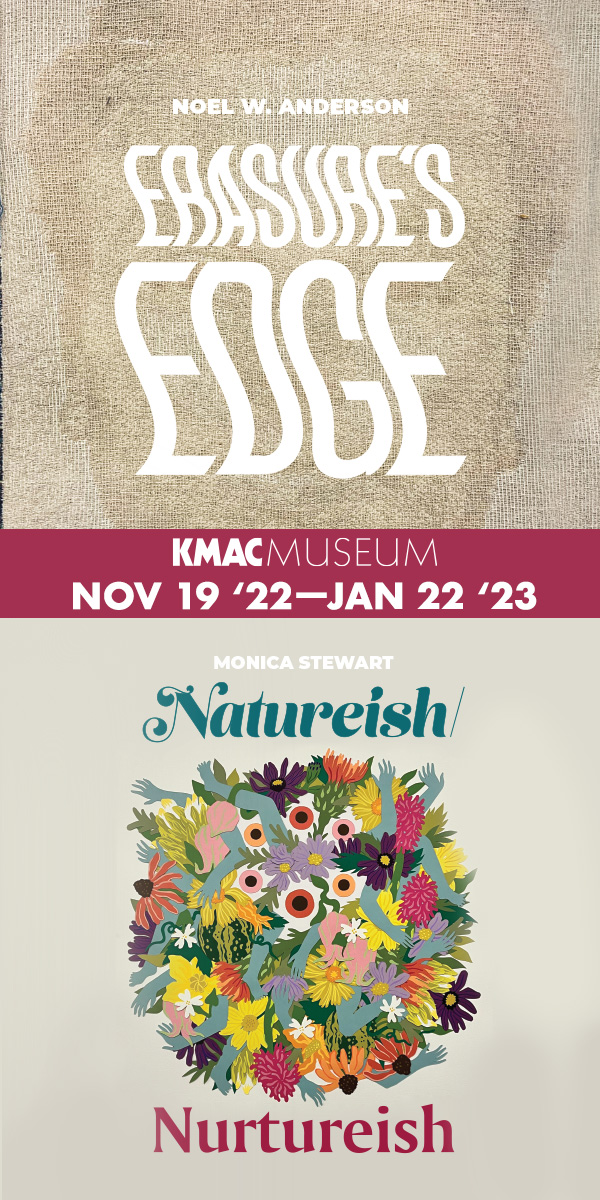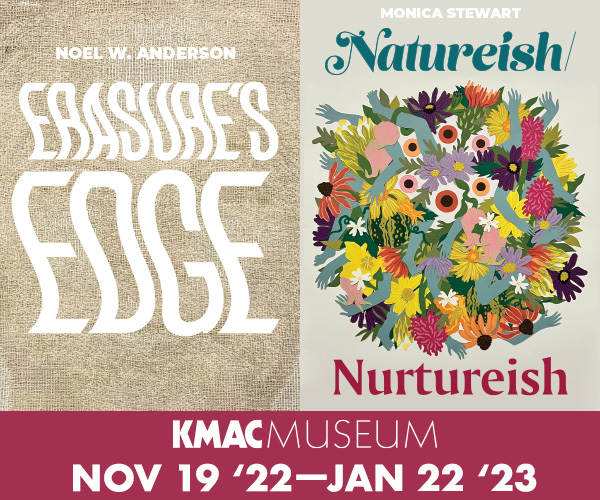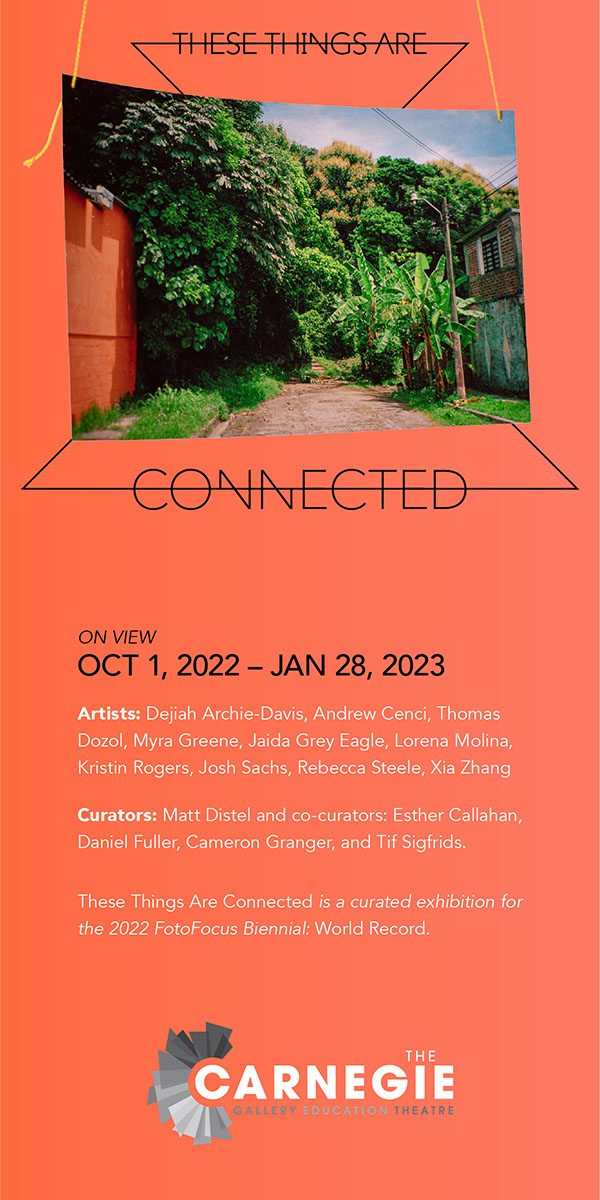Jazz saxophonist Chris Potter burst onto the New York scene in 1989 as an 18-year-old prodigy with bebop icon Red Rodney; the Chicago-born saxophonist then became the youngest musician ever to win Denmark’s Jazzpar Prize. His discography now includes 16 albums as a leader and sideman appearances on over 100 more. He has also performed or recorded with such leading jazz figures as Herbie Hancock, Pat Metheny, Jim Hall, Paul Motian, Ray Brown, John Scofield and Dave Douglas, as well as with the Mingus Big Band.
Potter takes the stage at Lexington’s Lyric Theater at 7 pm tonight. Lexington architect and jazz artist Clive Pohl talked music with Potter. Here’s part three of their conversation.Â
Clive: Your record This Will Be was the result of having won the Jazzpar Prize in Copenhagen and it’s a live recording is it not?Â
Chris: Yes.
Clive: And so, I’m curious: what did that feel like as a young musician? You were not yet 30 years old and you won a very prestigious international prize. That must have been incredibly exciting.Â
[aesop_video width=”content” align=”center” src=”youtube” id=”Gx4MzakhKvc” disable_for_mobile=”off” loop=”off” autoplay=”off” controls=”on” viewstart=”off” viewend=”on” revealfx=”off” overlay_revealfx=”off”]
Chris: Yeah. Well, I thought that helped in terms of visibility for me, you know, especially in Europe, but it also served to give me a little more confidence that, “okay, maybe I can do this, I can actually go on the road as a leader and present my music.†It’s a whole different thing. Prior to that, I’d been doing my own records, but hardly ever performing live with my own group, you know, and there’s a whole thing about leading a band that involves the skills you need as a sideman but also other skills. Choosing what to play and when, choosing how to decide who you’re going to ask to be in the band. Just a million little things.Â
Clive: It’s not unlike being an architect wherein you have to get the foundation in place in order to get the building out of the ground with the help of many others who, on some level, have to buy into your vision.
Chris: Right. It’s one thing to have the best vision of what could be made in your head, but then when you have to deal with reality; “okay, well, who is available, and what materials are available, and how much money can we actually spend?†And if you’re not able to negotiate those things, then the thing that actually comes into reality isn’t gonna be on the same level. So, that’s been a journey and a turning point for me; learning how to be a bandleader.
Clive: Am I correct in assuming that with respect to your compositions the ante might have been raised a little bit with the Jazzpar suite?
Chris: Yeah. I don’t remember that I had written for a large, or even medium-sized ensemble up to that point. That might have been one of my first real stabs at that. I think I did some things in school for big band or various ensembles but that helped to lead into a fascination with writing for larger groups and seeing how I can flesh out the ideas that I have compositionally for the bigger palette of a larger ensemble.
Clive: A quick question or two about your compositional development. When you’re writing a piece like, for example, Chief Seattle, (Song for Anyone, 2007) it is an absolutely beautiful piece,  and one that jumped out at me having lived in Seattle for many years. When you choose a name like that; which comes first, the music or the name?
Chris: It depends on the situation. I think that name did come later. I had just read a book with some quotes and a beautiful speech about taking care of the earth. There’s a certain energy about that piece that reminded me of someone who is in charge, and someone that does have a vision of how to lead. I found that feeling in the piece and I think that led me to the name.
Clive: Do you have a spiritual practice, a meditation practice, or a specific time of day that you compose? It’s hard for me to imagine how you find time, given how full your schedule is. Â
Chris: I don’t exactly have any one practice that I use. I’ve read about different meditation strategies but really can’t say that I follow one thing with regularity. To a certain extent, the saxophone helps with that in that when I’m working on music, when I’m working on sound, by playing long notes and just focusing on breathing, there’s a kind of saxophone “yoga†I get into, and the music itself can help with some of those things. Music can’t do it by itself – life has to come before the music or there’s not going to be anything worth listening to! But it is helpful to approach music from a bit of a sacred point of view.Â
Clive: Well, certainly, playing saxophone is a different experience from playing the guitar in that it involves the breath and anyone can hear that… Paul Desmond’s playing is clearly connected to his breath and inner being.
Chris: Yeah, that’s a nice thing that it has in common with the voice. It is really a complete connection to breath. It’s a serious limitation that you can only play one note at a time, but you can do so much with every note because of the expressiveness you can get from each breath. So, being able to control the breath and really think about what that means on a deep level — it does lead into a meditative state when you’re in it. As far as the time of day that I write, I’m usually grabbing whatever time I can. For that particular record I recall that I came up with the basic framework at home in terms of tunes and the basic structure, but I think I wrote and fleshed it out with the orchestration while on the road. It’s been a great big help to a lot of us as composers that you can write on a computer and save your work and then edit later. It’s very useful to be able to travel and work on things. It’s not ideal, but, in the life of a working musician there’s seldom a chance to say “okay, I’m gonna take 3 months off and do thisâ€. I hope to have that experience in my life but so far, it’s not lining up that way (laughs).Â
Clive: Right. I have one last question for you, Chris. It may be a difficult question for you to answer, but I’m curious to hear how you might muse upon it. You’ strike me as someone who is clearly talented from early on and clearly disciplined and committed to the music. So, the question of nature versus nurture, where do you stand with that? What percentage of your makeup is natural talent versus just raw hard work?Â
Chris: That is something I’ve thought about. I mean, being naturally gifted at something is obviously a big head start, and I think a big part of the head start is that, if it’s rewarding to do it, immediately if you say like “oh okay, I get thisâ€, then you’re gonna want to do it more and you’re gonna devote more energy to it. So, it’s a cycle that reinforces itself. It’s definitely easier for some people to grab certain things I’ve seen and harder for others, you know. It definitely helps to just be able to understand things quickly. I mean, not in every case, but that was something that manifested itself fairly early with what I was doing. On the other side, I feel like I’ve known many extremely talented people that never found a way to live up to what they were probably able to do. I’m a firm believer that while raw talent helps, it doesn’t even get you halfway there. There really has to be a lot of time spent, and a lot of commitment to it.
Clive: I suspect too that on some core level, you understood as a teenager that you had to get up to New York and that commitment to that place helped to fuel your forward motion.
Chris: Oh yeah. I mean, it was great to get kicked in the pants! I mean, there wasn’t anyone my age in South Carolina that I knew who was playing at all. So, I was this big fish in a small pound. So, coming to New York and meeting all these other amazing musicians and being exposed to all this stuff that I really just hadn’t heard was a huge catalyst for growth and remains that way and that’s why I’m still here.Â
Clive: Yeah. There is a decidedly competitive streak between musicians, no doubt about it.
Chris: Yeah. Yeah. In a mostly positive way.
Clive: Sometimes delivered with love and sometimes not.Â
Chris: Yeah. Maybe sometimes not, but usually with, you know – if there is respect!
Clive: That’s right. That’s right. Well, on that note of love and respect, I  want to thank you and I look forward to hearing you on April 22nd. I’ll come up and say hello if that’s OK…
Chris: Thank you! I’m looking forward to it!Â





